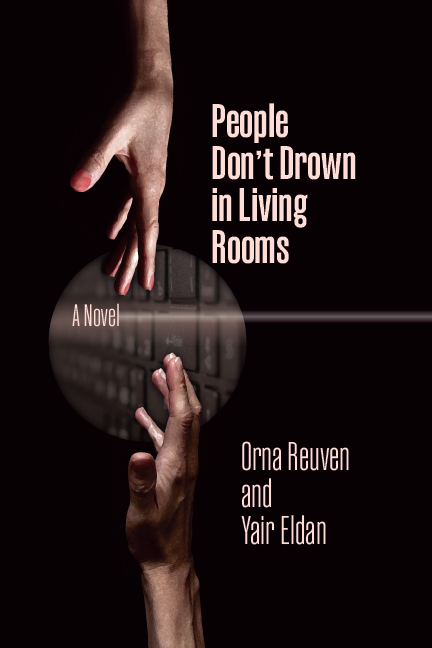
Click Here to Purchase: People Don’t Drown in Living Rooms by Orna Reuven and Yair Eldan from IPBooks.net
Click Here for: Letters 1 to 10
Click Here for: Letters 38 to 42
Above are two clusters of chapters from a unique psychological novel, “people don’t drown in living rooms”. Written in two voices, in the form of epistolary exchanges between analyst and patient, this book is unique in its form as well as in its contextual content. Touching on the complexity of emotional and physical boundaries between therapist and client, through the tumultuous arena of erotic transference – as Danielle Knafo, professor, psychoanalyst and author, commented “This book teaches us more about the intensity of the love-hate dynamics that exist between patient and analyst than any journal article on the subject”.
This book was written by two authors; Dr. Orna Reuven, a psychoanalyst and lecturer from the Tel-Aviv Institute for Contemporary Psychoanalysis, and Dr. Yair Eldan, a lecturer of law from The Hebrew University, who together embarked on an adventure knowing how it would begin but with no view of where it would end. During the writing of this book, they took it upon themselves to restrict their communication to the letters, allowing the characters to evolve within them in reciprocity to one another. That is how Ella and Itamar, the protagonists of this drama, came to life.
Ella, a psychoanalyst living in Tel-Aviv, receives an evocative email from her former patient, Itamar. Itamar’s email marks the beginning of a tumultuous correspondence, that traverses the distance from Tel-Aviv to New York and explores the boundaries of their relationship. In the madness of his alienation whilst yearning for connection, Itamar seeks and finds that part of Ella that is willing to go “all in” for her patient. Ella and Itamar loose themselves as they both try to bridge the gulf between them, in an attempt to find a common ground of sane understanding.
We would like to interest you in this book, as it touches on the most taboo of subjects in psychanalysis in the provocative, yet safe, sphere of fiction. Prof. Dana Amir, a clinical psychologist, supervising and training analyst, poetess and literature researcher, wrote about the book that it is: “An engrossing, addictive novel of letters, the reading of which is in itself a roller coaster of identifications, and which manages at the same time to touch deeply on the essence of the analytical relationship and to exceed all its rules and boundaries.”. In this context we can allow our imagination to interact with the characters and play with our boundaries in ways that are unthinkable in the reality of our professionalism.
Dr. Galit Atlas, psychoanalyst, faculty NYU, an essayist and author reviewed this book as “An incredibly profound and emotional reading experience!”. We hope that you feel the same.
